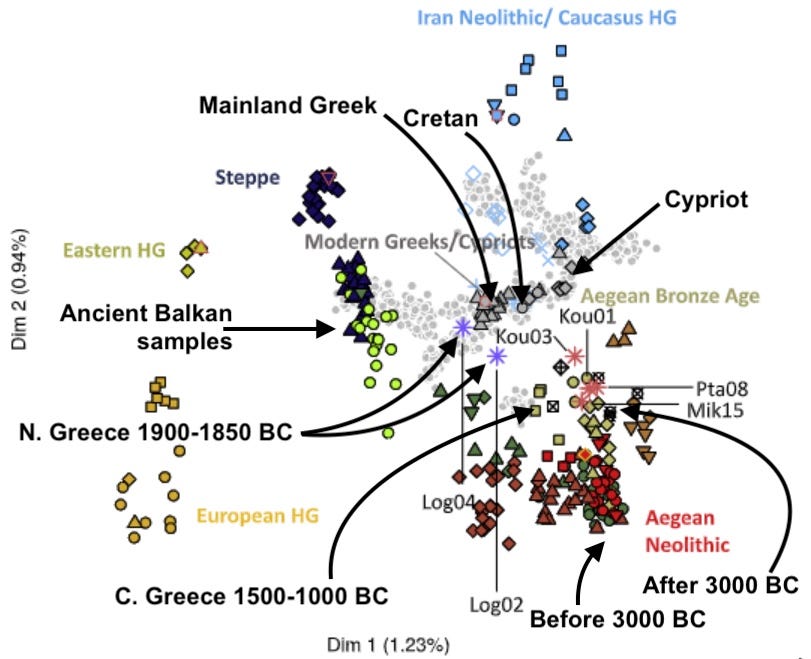They're all Greeks to me (part 2)
Farmers, Minoans, Mycenaeans and Slavs
Note: This is part 2 of a series. You can read part 1 here.
Who are the Greeks and where did they come from? Who were their ancestors and where did they live? The Greeks have a written history stretching back more than 3,000 years, and you could argue the modern scientific field of archaeology cut its teeth on Greek prehistory. And unlike most of the world’s nations, the ancient mythos and oral history of the Greeks are extensively documented in works of literature, like the Iliad, so central to Western culture’s self-conception. To a great extent, we know where the ancient Greeks thought they were from because their origin legends were recorded and written down. We can “ask” the ancient Greeks themselves.
But the copiously documented myths passed down to us do present us with origins both fantastical and exotic. Separating recollected history from invention can be tricky, even for scholars who dedicate their lives to the project. In the realm of fantasy, many classical Greeks, including the Athenians, insisted that they were autochthonous, indigenous and sprung from the soil of Hellas. Others, usually elite families, claimed to hail from foreign and exotic lands. Pelops, the founder of the House of Atreus from which kings Agamemnon of Mycenae and Menelaus of Sparta sprang, was an easterner from somewhere in Anatolia, perhaps Phrygia. Cadmus, who founded Thebes was reputedly a Phonecian, while Danaus, a king of Argos for whom the Greeks are named in the Iliad as Danaans (“tribe of Danaus”) was Egyptian.
The exogenous origin of so many Greek heroes and ruling dynasties likely reflects real contact of the Dark-Age Hellenic tribes with traders from Egypt and the Levant. These outsiders were the ones who reintroduced writing in the form of an alphabet and stimulated Greek social and political ideologies during the Archaic Age (both the legendary originators of the political and social structure of classical Athens and Sparta, Solon and Lycurgus, were said to have traveled abroad). The tales of exotic kings are similar to Virgil’s claim that Romans descend from Trojans in the Aeneid or the urban legend that the modern British House of Windsor’s practice of circumcision derives from its belief that it descended from ancient Israel’s House of David. These myths added the glamor of antiquity to the ruling caste of a people who were new members of the ancient congress of nations.
But just as the House of Windsor does not descend from the House of David (nor from Wotan through the House of Wessex), so the ancestors of the ancient Greeks’ ruling class were not actually in the main Egyptian, Phrygian or Phoenician.



